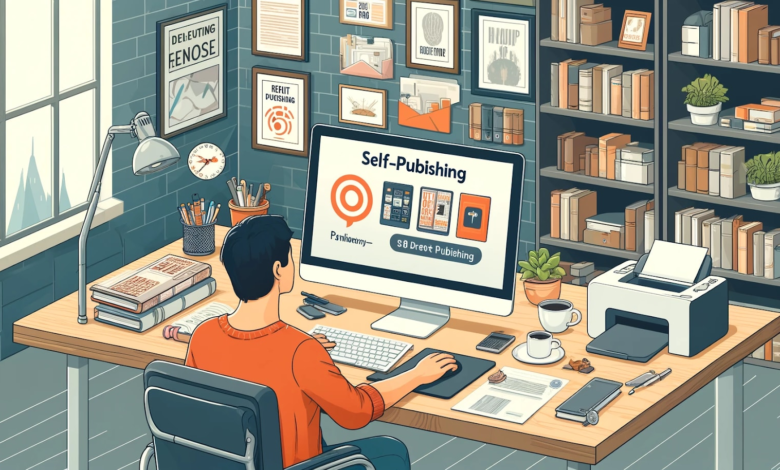The Future of Storytelling: How AI is Transforming the Craft of Book Writing

The way we write books is undergoing a transformation, thanks to the rise of artificial intelligence (AI). AI is not just a tool for tech industries; it’s rapidly becoming a valuable asset in the world of storytelling. From assisting writers in overcoming creative blocks to helping generate entire books, AI is reshaping the writing landscape. But how is this change affecting authors and their creative processes? In this post, we’ll dive into how AI is influencing the future of storytelling.
AI as a Tool for Inspiration and Productivity
AI is quickly proving itself to be a useful companion for writers, not as a replacement but as an enhancer of creativity. Writers can turn to AI tools for help with brainstorming, developing storylines, or overcoming writer’s block. With the ability to generate new plot ideas, suggest character development paths, and even write dialogue, AI makes the creative process smoother and faster. These tools help writers focus on the core elements of their story while letting AI handle the repetitive tasks or suggest fresh directions that might not have been considered before.
Expanding Access to Writing for Everyone
One of the most exciting aspects of AI in writing is how it democratizes the process. AI-powered tools are making it easier for anyone to create high-quality written work, whether or not they have formal writing training. Aspiring writers, including those with little experience or resources, can use AI to produce compelling stories, receive feedback on drafts, and fine-tune their writing. These tools allow anyone with an idea to dive into writing, significantly lowering the barrier to entry and empowering more people to share their stories.
The Creative Freedom AI Brings to Writers
While AI might seem like a rigid, mechanical tool, it actually opens up creative possibilities. Writers can experiment with different structures, genres, and voices without feeling restricted by traditional methods. For instance, AI can help generate unconventional plot twists, mix genres, or create complex characters that go beyond standard tropes. The more AI learns from existing literature, the more it can offer diverse and unexpected suggestions, pushing writers to think outside the box and explore new directions.
Balancing Creativity and AI: The Ethical Dilemma
As AI becomes more involved in the writing process, questions about its impact on creativity and ethics arise. Can AI-generated content truly be considered art? Where do we draw the line between a writer’s voice and machine-generated ideas? These are important questions, and while AI can assist and inspire, it’s essential that writers retain ownership of their creative work. The human element — the emotions, experiences, and insights — is what gives stories their power, and that should never be replaced by technology. Writers must use AI as a tool, not a crutch, and ensure that their personal voice remains central to their work.
The Role of AI in Publishing and Marketing
AI’s influence goes beyond just the writing process. It’s also making waves in the publishing and marketing worlds. Authors can use AI to help with editing, formatting, and even predicting which types of stories might appeal to certain audiences. AI-driven tools can also assist with personalized marketing strategies, tailoring book recommendations based on readers’ preferences. As AI continues to improve, it will become an even more integral part of the publishing process, offering authors more control and better tools to reach their target audience.
Looking Toward the Future of AI in Storytelling
As AI technology evolves, so too will its role in storytelling. In the future, we may see more advanced AI systems capable of creating more nuanced narratives, developing characters with emotional depth, and even creating immersive interactive storytelling experiences. AI could change the way we engage with literature, allowing readers to influence the direction of a story or dive deeper into characters’ worlds. However, as technology progresses, the importance of maintaining human authorship and creativity will be key.
In conclusion, AI is not just changing how books are written but also broadening the horizons of what’s possible in storytelling. By offering new tools, creative freedom, and access to writing, AI is helping authors push boundaries and explore new ways of crafting stories. While the future of storytelling is exciting and full of potential, the heart of writing will always remain human, with AI acting as an enhancer and creative partner. The collaboration between AI and writers promises an exciting future for the world of literature.
Source link


